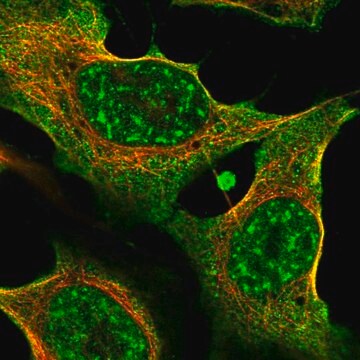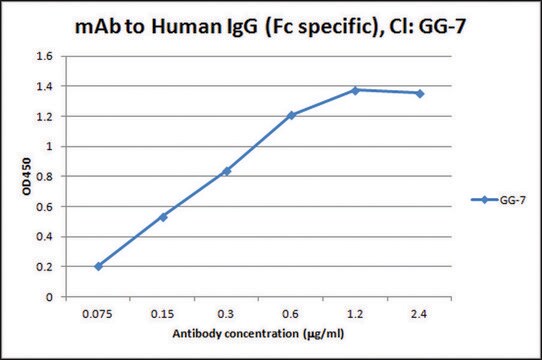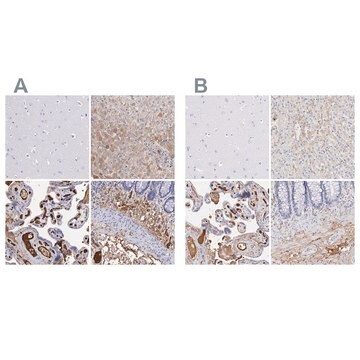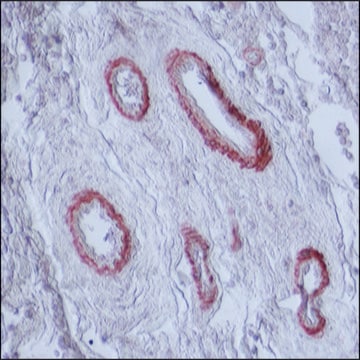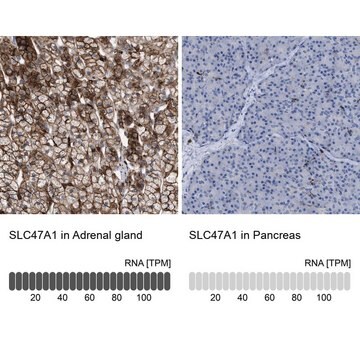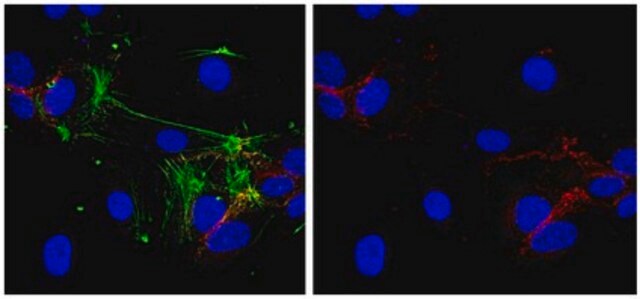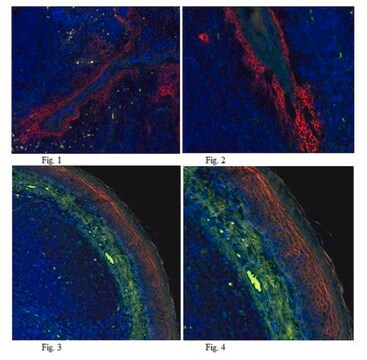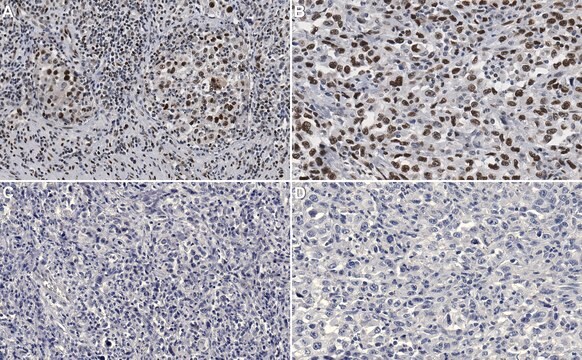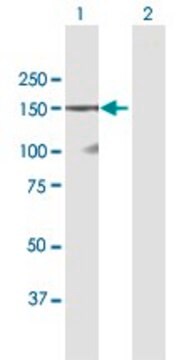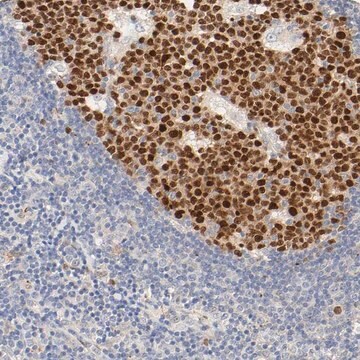SAB4200466
Anti-Desmoglein 2 (DSG2) antibody, Mouse monoclonal
clone AH12.2, purified from hybridoma cell culture
Synonym(s):
Monoclonal Anti-ARVC10, Monoclonal Anti-ARVD10, Monoclonal Anti-CDHF5, Monoclonal Anti-CMD1BB, Monoclonal Anti-Desmoglein 2 (DSG2) antibody produced in mouse, Monoclonal Anti-HDGC, Monoclonal Anti-desmoglein 2
About This Item
Recommended Products
biological source
mouse
Quality Level
conjugate
unconjugated
antibody form
purified from hybridoma cell culture
antibody product type
primary antibodies
clone
AH12.2, monoclonal
mol wt
antigen ~150 kDa
species reactivity
human
concentration
~1.0 mg/mL
technique(s)
indirect immunofluorescence: 2.5-5.0 μg/mL using HeLa cells
western blot: 0.5-1.0 μg/mL using HeLa total cell extracts
isotype
IgG1
shipped in
dry ice
storage temp.
−20°C
target post-translational modification
unmodified
Gene Information
human ... DSG2(1829)
General description
Immunogen
Application
Biochem/physiol Actions
Physical form
Disclaimer
Not finding the right product?
Try our Product Selector Tool.
Storage Class Code
10 - Combustible liquids
WGK
WGK 2
Flash Point(F)
Not applicable
Flash Point(C)
Not applicable
Certificates of Analysis (COA)
Search for Certificates of Analysis (COA) by entering the products Lot/Batch Number. Lot and Batch Numbers can be found on a product’s label following the words ‘Lot’ or ‘Batch’.
Already Own This Product?
Find documentation for the products that you have recently purchased in the Document Library.
Our team of scientists has experience in all areas of research including Life Science, Material Science, Chemical Synthesis, Chromatography, Analytical and many others.
Contact Technical Service